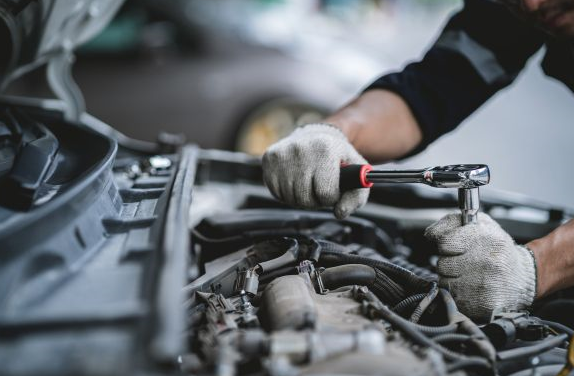If you own a car, you have to keep it in top condition if you want to hit the road without trouble year after year. These five quick car maintenance tips enhance your vehicle’s longevity.
Prioritize Oil and Filter Changes
Oil and filter changes are essential vehicle ownership tasks. Engine oil accumulates dirt and debris, which can cause engine wear. Change the oil and filter regularly, typically every 3,000 to 5,000 miles. Maintaining clean oil ensures proper lubrication. Regular oil changes also improve fuel economy, saving you money.
Pro Tip
Keep in mind that many modern engines need synthetic oil for better protection and performance. Using inferior oil can decrease efficiency and lifespan.
Inspect and Rotate Tires
Consistent tire evaluations help detect issues such as uneven wear. Use a penny to check tread depth; insert it into the groove with Lincoln’s head upside down. If you see all of Lincoln’s head, your tread is too low, and it’s time to replace the tires.
Rotating your tires is also important. Swap the front tires with the rear to even out wear patterns. Performing this every 6,000 to 8,000 miles extends the tires’ lifespan and saves them from unnecessary wear and tear.
Check Your Brake System
Neglecting brakes can cause serious accidents and damage. Listen for unusual sounds, like squealing or grinding, which may indicate worn-out brake pads.
Also, inspect the brake fluid, as contamination can damage the system, leading to costly repairs. Flushing and replacing the fluid every two years maintains performance and reliability.
Test Battery and Electrical Systems
Regularly test your battery’s charge and inspect it for corrosion around the terminals. Most car batteries last about three to five years, so consider a replacement if yours is nearing the end of its lifespan. If you’re heading into winter, it’s a good idea to perform a battery test. Many auto parts stores offer free battery testing.
Apart from the battery, inspect your car’s electrical system, including lights, wipers, and power windows. Faulty electrical components can lead to inconvenient breakdowns and should be addressed promptly.
Review the Spark Plugs
Over time, spark plugs can become fouled with carbon buildup. When this happens, your car could experience poor acceleration, decreased fuel efficiency, and higher emissions. Knowing what to do when your car’s spark plugs are fouled will get you out of sticky situations. Additionally, replacing them every 30,000 miles—or as advised by your manufacturer— allows your engine to run properly.
By incorporating these five car maintenance tips into your routine, you’ll not only enhance your vehicle’s longevity but also improve its performance. Maintaining your car well makes driving delightful and provides peace of mind on the road. As you look after your vehicle, keep these strategies in mind for a seamless driving experience.




